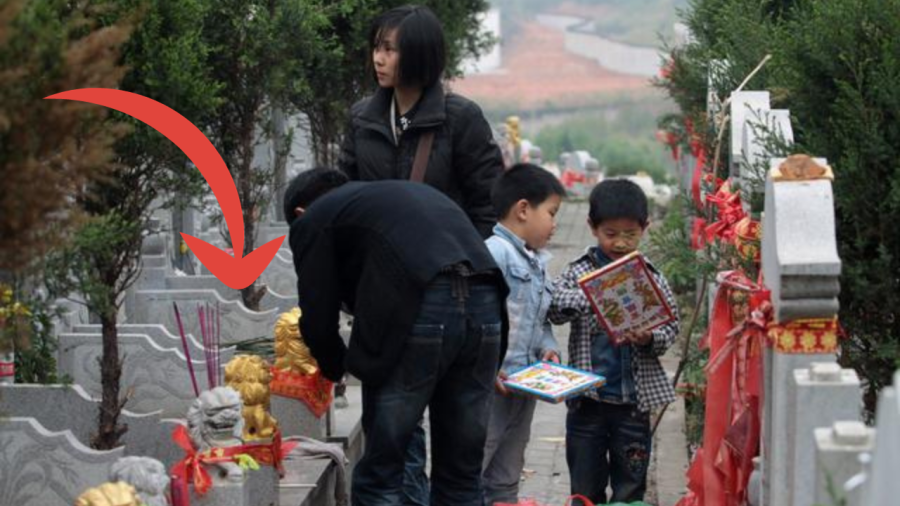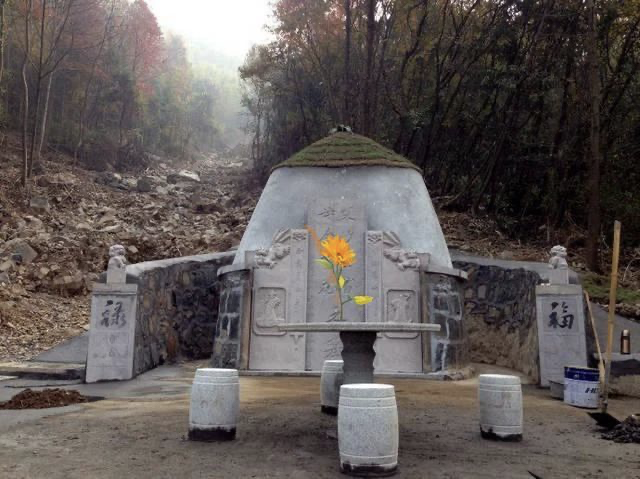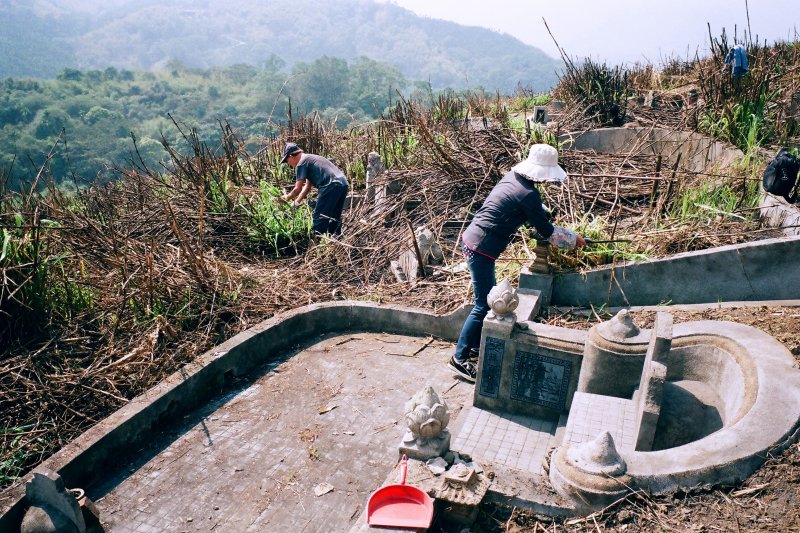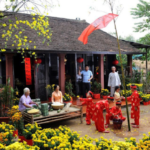Grave worship has been a long-standing tradition. According to tradition, many families visit their ancestors’ graves on the 25th day of the twelfth lunar month. However, in many places, after the 10th day of the twelfth lunar month until the Lunar New Year, when families are complete with grandchildren who can bring flowers, fruits, and cakes to offer to their ancestors.
Everyone together plants grass, cleans the grave, and decorates it neatly to invite their ancestors to come home and celebrate the Lunar New Year with their descendants. Every family must arrange to finish the grave visitation before the afternoon of the last day of the Lunar New Year’s Eve. If the grave visitation is not finished by the eve, the descendants will still be restless and cannot find peace.

The tradition of grave worship during the Lunar New Year reflects the spirit of respect, love, and filial piety towards ancestors. When talking about people, it is about filial piety towards parents, and that quality cannot be forgotten. Those who forget filial piety are not considered to be morally good people. This is the tradition of Vietnam, a way to educate young generations. It is also an occasion to remind each person to reflect on their own morality and remind adults to always treat others and their parents well.
When mentioning grave worship, there is an old saying: “Visit grave for no more than 3 generations, and grave visitation should not exceed the Mui hour.”
Visit grave for no more than three generations
The phrase “Visit grave for no more than three generations” means that typically grave visitation is only up to three generations, for example, children visiting their parents’ graves belong to the second generation, and grandchildren visiting their grandparents’ graves belong to the third generation.
From the perspective of family affection, apart from parents, the closest relatives are grandparents, and there are also other relatives from different generations. In life, many people are strict with their children, but when they grow old, they are very indulgent towards their grandchildren. Therefore, for those grandparents who love their grandchildren so much, it is right for the grandchildren to visit their grandparents’ graves.

But if we go back to the previous generation, that is, the parents of grandparents. When the grandchildren are born, they may have never met them, so the emotional connection is not too deep, so it is not necessary to force the grandchildren to visit their graves.
Besides, there are more previous generations before grandparents. After a long time, many people do not visit their graves due to their busy schedules, even though they have deep filial piety in their hearts.
That is why the saying goes: “Visit grave for no more than three generations.” But in ancient times, some large clans had ancestral halls. After someone passed away, their tablet could be placed in the ancestral hall so that their descendants could offer incense and worship, even if they didn’t physically visit the graves. This is also a symbol of the great achievements of the clan.
Grave visitation should not exceed Mui hour
So what is the significance of “Grave visitation should not exceed the Mui hour”?
The ancients attached great importance to the morning, there was a saying “a day starts early in the morning,” so the morning is a very important time. “Mui hour” refers to the afternoon from 1 p.m. to 3 p.m., this saying means that grave visitation should not be later than 3 p.m. each time. Therefore, every time we visit graves, we can see that many people go in the morning. This is considered from various aspects.
Firstly, showing respect, waking up early and going to the grave neatly, instead of realizing later in the afternoon when people wake up from a good sleep.
Secondly, the morning has more yang energy and clean air. After visiting the graves, people feel refreshed, which is also good for oneself, and the following matters will go smoothly.
Thirdly, it is related to the belief that the afternoon has heavy yin energy. As the evening approaches, negative things will come out. If we visit our ancestors’ graves during this time and spread paper money and offer food, we may fall victim to theft.

Conclusion
With the reasons and considerations mentioned above, the ancients said: “Visit grave for no more than three generations, and grave visitation should not exceed the Mui hour.” The words of our ancestors carry certain moral values.


































